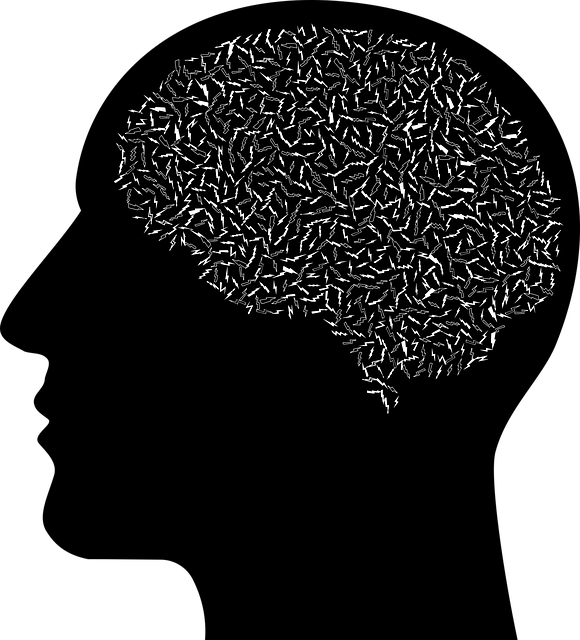Mood regulation techniques, such as Cognitive Behavioral Therapy (CBT), are essential components of Lakewood Drug Abuse-Substance Abuse Therapy, addressing the root causes of substance abuse. CBT helps clients identify and change negative thought patterns, learn mindfulness meditation for self-awareness, and develop healthier coping strategies to manage stress, anxiety, and depression. Alternative approaches like mindfulness and meditation, offered by reputable centers, further enhance emotional well-being by cultivating present-moment awareness. A supportive environment, with tailored activities and positive self-care practices, is vital for long-term recovery, fostering resilience against triggers and cravings while improving overall mental health.
Mood regulation is a vital skill in managing mental health and overall well-being. This comprehensive guide explores effective strategies to help individuals navigate and control their emotions, offering a path to improved mental resilience. We delve into evidence-based practices such as Cognitive-Behavioral Therapy (CBT), which has proven successful in treating substance abuse and mood disorders in Lakewood. Additionally, alternative approaches like mindfulness and meditation are showcased, providing a multi-faceted approach to emotional well-being.
- Understanding Mood Regulation and Its Significance
- Cognitive-Behavioral Therapy: A Powerful Tool for Mood Management
- Alternative Approaches: Mindfulness, Meditation, and Beyond
- Creating a Supportive Environment for Long-Term Recovery
Understanding Mood Regulation and Its Significance

Understanding Mood Regulation is a pivotal step towards enhancing overall well-being and quality of life. It involves managing and stabilizing emotions, ensuring they align with one’s goals and promote healthy functioning. Effective mood regulation strategies are essential tools in navigating life’s challenges, from everyday stressors to more severe conditions like anxiety relief and burnout prevention among healthcare providers. These techniques empower individuals to foster resilience building, enabling them to cope with difficult situations and maintain emotional balance.
In the context of Lakewood Drug Abuse-Substance Abuse Therapy, mood regulation takes on added importance. Substance abuse often stems from an individual’s inability to manage intense emotions or stress, leading to unhealthy coping mechanisms. By implementing evidence-based strategies, therapists can help clients develop healthier ways to regulate their moods, thereby reducing reliance on substances as a means of relief. This approach not only supports recovery but also empowers individuals with lifelong skills to navigate life’s ups and downs with greater ease and resilience.
Cognitive-Behavioral Therapy: A Powerful Tool for Mood Management

Cognitive-Behavioral Therapy (CBT) is a highly effective strategy for managing and regulating moods, particularly in cases of Lakewood Drug Abuse-Substance Abuse Therapy. This therapeutic approach focuses on identifying and modifying negative thought patterns and behaviors that contribute to emotional distress. By understanding the connection between thoughts, feelings, and actions, individuals can gain valuable insights into their mood fluctuations and develop healthier coping mechanisms.
Through CBT, clients learn communication strategies to challenge distorted thinking, practice mindfulness meditation for better self-awareness, and cultivate inner strength development. These techniques empower individuals to manage stress, anxiety, and depression more effectively, leading to improved emotional well-being. With its structured nature and emphasis on practical tools, CBT offers a powerful toolkit for those seeking long-term mood regulation and overall mental health enhancement.
Alternative Approaches: Mindfulness, Meditation, and Beyond

In addition to traditional talk therapy and medication, individuals seeking effective mood regulation strategies can explore alternative approaches like mindfulness and meditation. These practices are rooted in the Mind Over Matter principles, fostering a deeper connection with one’s thoughts and emotions. By cultivating present-moment awareness through techniques such as deep breathing exercises and non-judgmental observation, individuals can learn to navigate stressors and triggers more effectively. Research suggests that regular mindfulness practice can significantly enhance stress management, reducing symptoms of anxiety and depression while promoting overall well-being.
Integrating alternative methods into treatment plans offered by reputable Lakewood Drug Abuse-Substance Abuse Therapy centers can provide comprehensive Trauma Support Services. Mindfulness and meditation offer a holistic approach to healing, addressing the mind, body, and spirit connection. This synergistic effect can be particularly beneficial for those navigating complex trauma histories, as these practices encourage emotional regulation and resilience. Through dedicated practice, individuals gain tools to cultivate inner calm, improve coping skills, and foster positive mood states, even in challenging situations.
Creating a Supportive Environment for Long-Term Recovery

Creating a supportive environment is paramount for long-term recovery from drug abuse and substance dependence. This involves both physical and emotional aspects tailored to individual needs. At Lakewood Drug Abuse-Substance Abuse Therapy, we recognize that healing is facilitated by a safe, nurturing space where clients feel understood and empowered. This can be achieved through various means such as designing calming spaces within the therapy setting, encouraging open communication, and promoting positive self-care practices. By fostering an atmosphere of acceptance and encouragement, individuals in recovery can build resilience against triggers and cravings.
Additionally, integrating confidence-boosting activities, stress reduction methods, and conflict resolution techniques into daily routines empowers clients to take ownership of their well-being. These strategies not only strengthen coping mechanisms but also enhance overall mental health, making it easier for individuals to navigate challenges without resorting to substance abuse. A holistic approach that considers both the environment and personal growth is key to sustainable recovery.
Mood regulation is a multifaceted process crucial for overall well-being. By understanding the importance of managing emotions, individuals can break free from destructive cycles of substance abuse like those seen at Lakewood Drug Abuse. Integrating evidence-based practices, such as Cognitive-Behavioral Therapy and mindfulness techniques, offers powerful tools for navigating emotional challenges. Creating a supportive environment further enhances recovery by fostering long-term mental health stability. These strategies empower individuals to take control of their emotional well-being, ultimately leading to healthier, more fulfilling lives.














